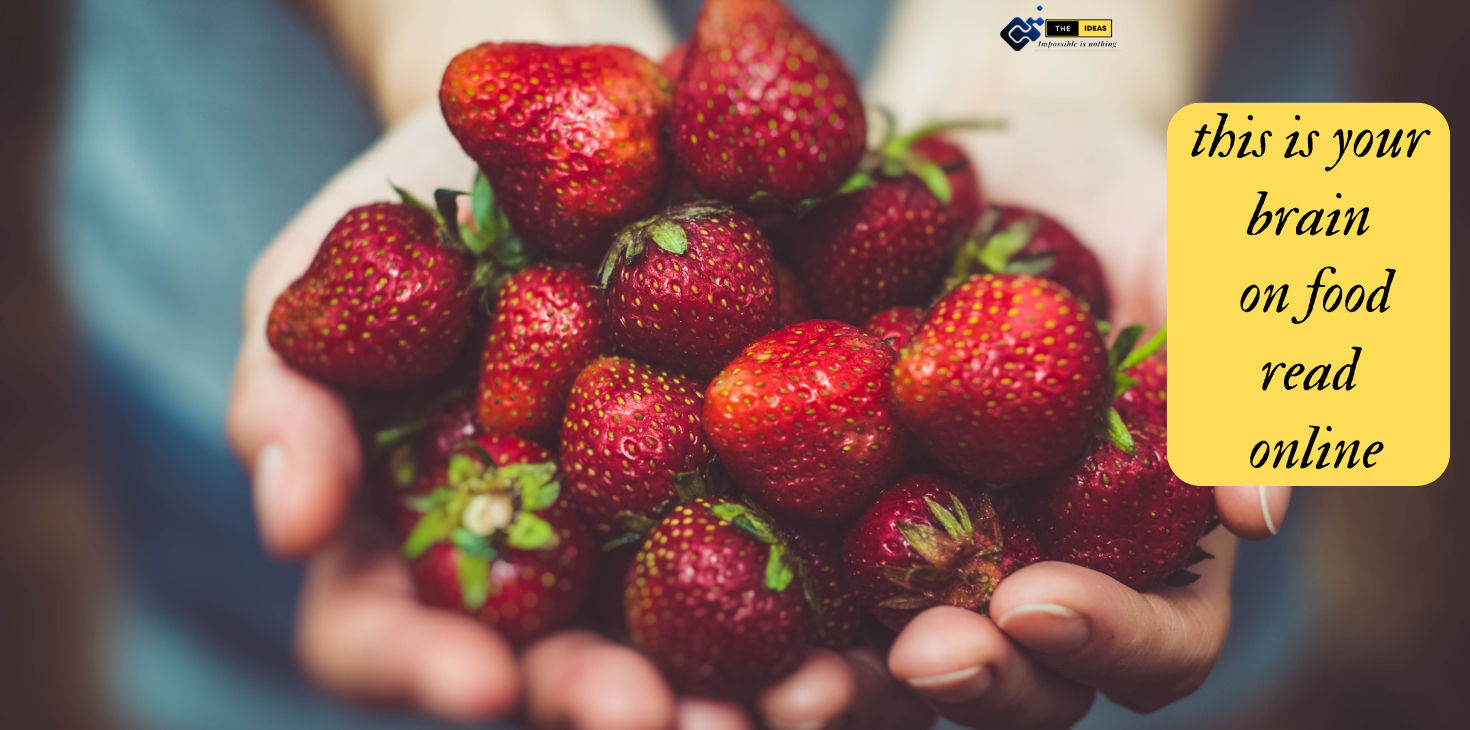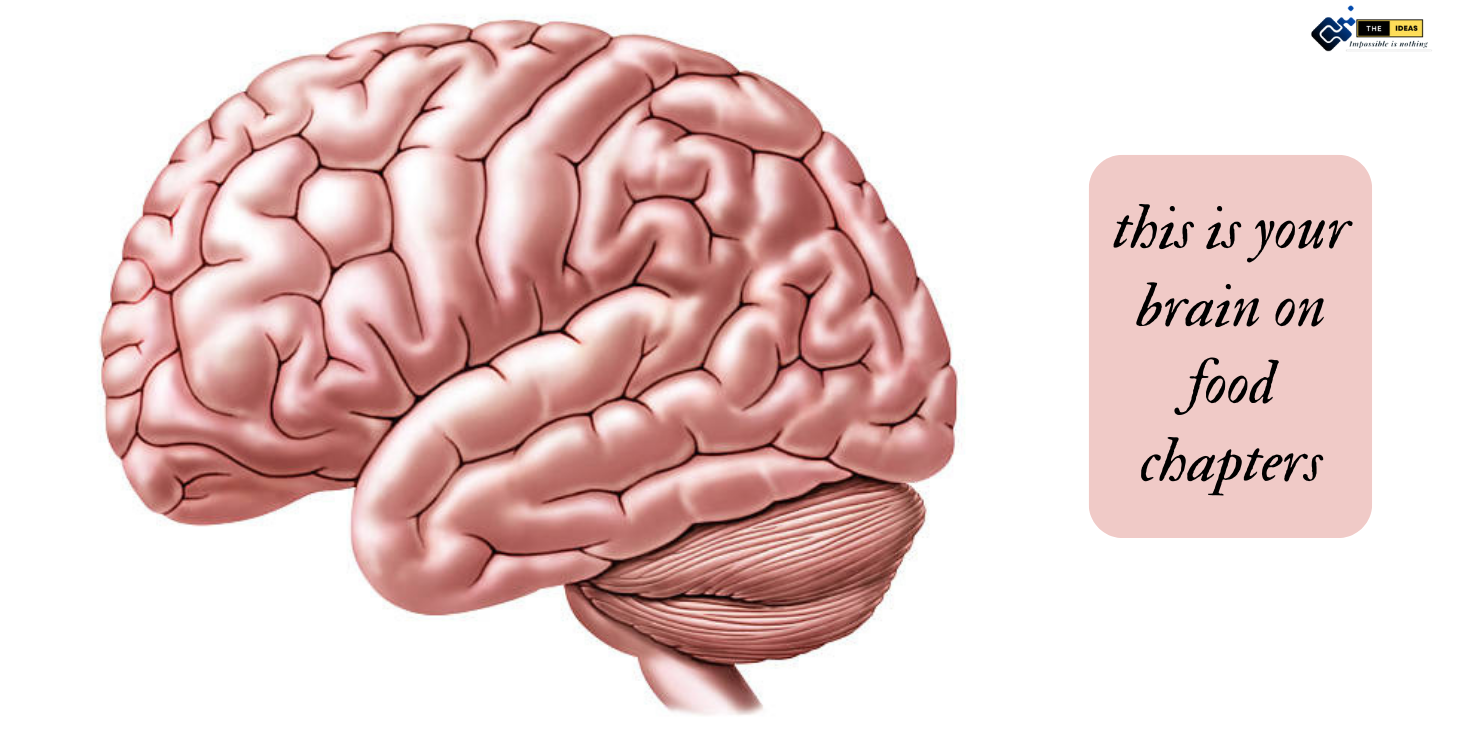This Is Your Brain on Food
This Is Your Brain on Food: An Indispensable Guide to the Surprising Foods that Fight Depression,
This Is Your Brain on Food: Did you know that blueberries can help you deal with the effects of trauma? Can salami cause depression or can increasing your vitamin D intake help treat anxiety?
When it comes to nutrition, most people think about weight loss, physical fitness, heart health, and longevity. But what we eat affects more than just our bodies. It also affects our brain. Now more than ever, our food is something we can control. Food can boost our immunity, which is also linked to depression and anxiety; Studies also show links to insomnia, dementia, and beyond.
This is Food on Your Brain is the definitive book on food for brain health, by an expert on the effects of food on the brain. It will teach you the science behind the gut-brain connection while helping you use nutrition to fight depression, anxiety, trauma, OCD, ADHD, and more.

Dr. Uma Naidu is a triple threat in the food sector. She is a Harvard psychologist who studied nutrition and is a trained professional chef. In This Is Your Brain on Food, she describes the latest research that explains the many ways food plays a role in our mental health and shows how healthy eating can prevent mental and cognitive health problems. It helps to treat and prevent a wide range of diseases.
Packed with fascinating science, actionable nutritional advice, and delicious, brain-healthy recipes, this is Diet on Your Brain’s guide to improving your mental health through nutrition.
this is your brain on food read online
We all know that what we eat can affect our physical health. But did you know that what we eat can also affect our mental health? It’s true! The food we eat can impact our brain function, mood, and overall mental health. In this blog post, we’ll explore how food can affect our brains and what we can do to eat for better mental health.
If you’ve ever felt “hangry” – that irritable, irrational feeling you get when you’re hungry – then you know that food can have a direct impact on our mood. When our blood sugar drops, we can feel tired, cranky, and just plain off. But it’s not just our blood sugar levels that can be affected by what we eat; the nutrients in our food can also impact our brain function.
So, what should we eat to support our mental health?
We all know that what we eat has an impact on our physical health. But did you know that what we eat can also impact our mental health? In this blog post, we’ll explore how different types of food can impact our mood and cognitive function. We’ll also provide some tips on how to make sure you’re getting the nutrients you need for a healthy mind and body.
What we eat has a direct impact on our brain function and overall mental health. The nutrients in our food can impact our mood, cognitive function, and energy levels. So, what
should we eat to support our mental health?

There are a few key nutrients that are particularly important for brain health. These include omega-3 fatty acids, B vitamins, vitamin D, and antioxidants. You can find these nutrients in a variety of foods, so it’s important to diversify your diet to get all the nutrients you need. For example, you can get omega-3 fatty acids from salmon, tuna, walnuts, and flaxseeds. B vitamins are found in leafy green vegetables, legumes, nuts, and whole grains. Vitamin D is found in fatty fish like salmon and tuna, as well as fortified dairy products and cereals. Antioxidants are found in a variety of fruits and vegetables, including berries, dark chocolate, and leafy greens.
Eating a nutritious diet is one important part of supporting your mental health. However, it’s also important to pay attention to other aspects of your lifestyle. Getting enough sleep, exercising regularly, managing stress levels, and maintaining social connections are all important for a healthy mind and body.
this is your brain on food adhd
What is ADHD?
ADHD stands for Attention Deficit Hyperactivity Disorder. It is a neurological condition that affects the way the brain functions. People with ADHD have difficulty paying attention, controlling impulsive behaviours, and are often overly active.
What causes ADHD?
The exact cause of ADHD is unknown, but it is thought to be caused by a combination of genetic and environmental factors.
How does diet affect ADHD?
There is no definitive answer as to whether or not diet plays a role in ADHD. However, some experts believe that certain foods can trigger or aggravate symptoms in people who are already susceptible to the condition. For example, sugary or highly processed foods may cause hyperactivity, while lack of essential nutrients like iron or omega-3 fatty acids may contribute to inattention and impulsivity.
If you think your child may have ADHD, it is important to speak with a healthcare professional. They will be able to rule out other possible causes and make recommendations for treatment.
this is your brain on food reddit
What you eat has a direct impact on the function of your brain. Eating a healthy diet helps to protect your brain from damage and keep it functioning optimally. Unhealthy eating habits, on the other hand, can lead to problems with memory, focus, and energy levels.
One way that food affects your brain is by providing the nutrients that it needs to function properly. Your brain is made up of many different types of cells, all of which require specific nutrients to function properly. For example, omega-3 fatty acids are important for maintaining the health of nerve cells, while vitamin B12 is essential for producing new red blood cells.
Another way that food impacts your brain is through its effect on inflammation. Inflammation is a natural response of the body to injury or infection, but chronic inflammation can be detrimental to brain health. Research has shown that certain foods can contribute to inflammation, while others can help to reduce it. For example, omega-6 fatty acids are pro-inflammatory, while omega-3 fatty acids are anti-inflammatory.
So what does this all mean for you? Eat a variety of healthy foods to give your brain the nutrients it needs to function at its best. Avoid processed foods and those high in sugar, saturated fat, and trans fat as they can contribute to inflammation and other problems. And make sure to get plenty of omega-3 fatty acids!
this is your brain on food amazon
When it comes to the foods we eat, it’s not just about the nutrients they provide our bodies. It’s also about how those nutrients interact with our brain chemistry to impact our mood, energy levels, and overall health.
For example, did you know that the type of fat you consume can influence the size and health of your brain? Studies have shown that people who eat a diet high in saturated fats (the kind found in red meat and full-fat dairy products) have a greater risk of developing Alzheimer’s disease than those who consume a diet rich in unsaturated fats (the kind found in fish, nuts, and olive oil).
The same is true for sugar. Consuming too much sugar has been linked to an increased risk of depression, anxiety, and other mental health disorders. And while we all need some sugar in our diets, it’s important to be mindful of how much we’re consuming. Refined sugars like those found in candy, cookies, and cake are particularly bad for our brains.
So what does this all mean for you? If you want to keep your brain healthy and happy, focus on eating plenty of fresh fruits and vegetables, lean protein, healthy fats, and complex carbohydrates. And limit your intake of processed foods, sugary drinks, and alcohol. By following these simple guidelines, you can help keep your brain sharp for years to come!
this is your brain on food chapters
A new wave of scientific thinking has begun to see the brain as not just an organ responsible for our thoughts and emotions, but also as a key player in regulating our metabolism and governing our appetite. This emerging field of study, known as neuro nutrition, is providing us with exciting insights into how the foods we eat can impact our brain health.

In this series of articles, we’ll be exploring the science behind some of the most popular food trends, including intermittent fasting, ketogenic diets, and brain-boosting foods. We’ll also be busting some myths about food and brain health, and sharing some tips on how you can use neuro nutrition to optimise your own brain health.
So whether you’re looking to improve your memory, focus or mood, or simply want to learn more about how food affects your brain, this series is for you!
This Is Your Brain on Food anxiety
When it comes to food anxiety, our brains can be all over the place. We may worry about what we’re eating, how much we’re eating, or whether we’re getting enough nutrients. We may also stress about food choices, portion sizes, and calorie counts.
This constant worrying can take a toll on our mental and physical health. It can lead to difficulty concentrating, headaches, and insomnia. It can also make us more likely to overeat or make poor food choices.
If you’re struggling with food anxiety, there are some things you can do to ease your symptoms. First, try to eat regular meals and snacks at set times each day. This will help to regulate your blood sugar levels and hunger cues. Second, focus on eating nutrient-rich foods that will give you energy and help you feel fuller longer. And finally, avoid deprive yourself of specific foods or entire food groups. This will only increase your anxiety and make it harder to stick to a healthy diet in the long run.
this is your brain on food free pdf
What if I told you that there’s a way to hack your brain and improve your mood, memory, and focus? And what if I said that this method is free, doesn’t require any special equipment, and is as easy as changing the foods you eat?
You might think I’m crazy, but it’s true! The foods you eat have a direct impact on your brain health. Eating the right foods can help improve your mood, memory, and focus while eating the wrong foods can lead to problems with mood swings, forgetfulness, and concentration.
So what are the best foods for your brain? Here are some of the top brain-boosting foods:
Omega-3 fatty acids: Found in salmon, walnuts, and flaxseeds, omega-3 fatty acids are important for maintaining healthy cell membranes in the brain. They can also help protect against cognitive decline and Alzheimer’s disease.
Blueberries: These little berries are packed with antioxidants that can help reduce inflammation in the brain and protect against damage from free radicals. Blueberries have also been shown to improve memory and cognitive function.
Turmeric: This spice contains curcumin, which has been shown to boost levels of BDNF (brain-derived neurotrophic factor) in the brain. BDNF is important for promoting neuronal growth and protecting against age-related cognitive decline.







